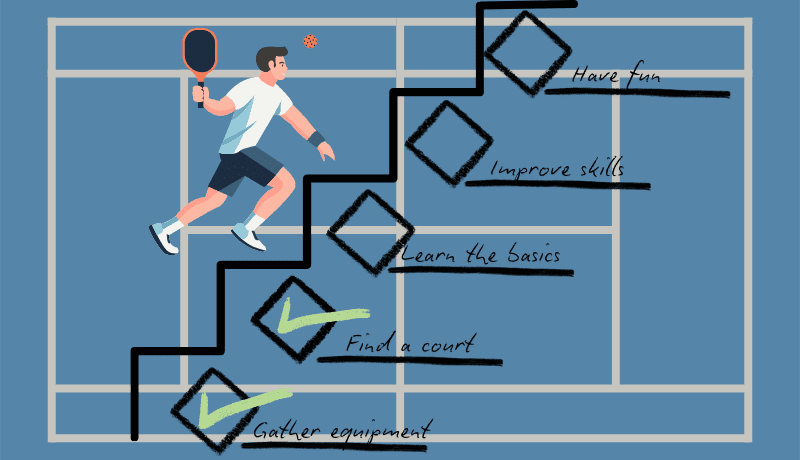Self-Care Routine: 15 Ways
It’s beneficial to take care of yourself, isn’t it? In this article, we’ll explore the details of this diverse and complex process.

A Popular Topic
The “So List” blog has covered self-care several times already, and all these articles were part of the “So Real List” section. And that’s great! The real people come and share their lists. Sometimes, they even shared their methods for making lists.
The other day, I checked Pinterest and discovered that people are generally interested in self-care, self-compassion. Surely, there must be a list on this topic. And indeed, I found something. Self-care is important for every human — it would be strange if there were nothing at all on the topic.
The desired list turned up in the book “The Parent’s Little Book of Lists” [1]. This book has already appeared on the blog once. It provided material for an article about 11 steps to raising an irresponsible child.
Every person can benefit from this post if some self-care practice is introduced to their daily life. Some might not be particularly inspired by a list of seemingly obvious tips, but don’t dismiss it just because it’s obvious. Often, the root of the problem isn’t that we don’t know what to do — it’s that we don’t do what we already know. So the issue might be that we don’t practice self-care.
So, a List of Effective Self-Care Routines
- Commitment to personal growth.
- Making health-conscious choices (for both physical and mental health).
- Setting boundaries.
- The ability to say “no”.
- Taking responsibility for your needs.
- Making time for yourself.
- Play and spontaneity.
- Not sweating the small stuff.
- Delegating tasks.
- Overcoming perfectionism.
- Building a support network.
- Limiting contact with negative people.
- Rejecting abusive behavior.
- Engaging with inspiring materials.
- Treating yourself to little joys.
Commitment to personal growth
Demonstrate a commitment to continual personal growth by learning new things and changing nonconstructive patterns in your own behavior.
I don’t quite understand why this recommendation is the first on the list. It seems like it should start with something like “relax, lie down,” but no. Apparently, this is a very long-term view of self-care activities.
Making health-conscious choices (for both physical and mental health).
Make choices in the best interests of your own physical and mental health.
Your life depends on physical health as well as emotional health, and neglecting it is simply a path to nowhere. By the way, the blog once featured a list dedicated to choosing a sport. And a well-balanced approach to sports, as we know, means good health. Lists on the mental self-care are yet to come.
Setting boundaries
Set, express, and maintain your boundaries.
This is quite useful both at work and in everyday life. It’s especially sad to see people burn out after spending years in an ungrateful job.
The ability to say “no”
Don’t say yes when you want to say no. If it’s hard for you to stand up for yourself, examine your own need for approval and your willingness to opt for self-sacrifice in order to avoid conflict.
There’s even a book called “Start with NO...” [2]. It teaches negotiation and more.
Taking responsibility for your needs
Take responsibility for your own needs. Quit waiting around for people to read your mind and take care of you. Ask for what you want.
The simple habit of “asking” was a big revelation for me once.
Moreover, asking can save lives. If someone suddenly feels unwell on the street, they should directly ask a specific passerby for help to save their lives [3]. Otherwise, people will just look around, expecting someone else to take action. There’s no time for hesitation when every minute counts.
Your task in this difficult situation is to ask a specific person to take specific actions.
Making time for yourself
Make time for yourself — just for yourself!
For parents of small children, this advice can be quite challenging to implement. But remember the previous point and know that there’s no shame in asking for help. Spending some time alone is a good way to reduce stress and anxiety.
Play and spontaneity
Play! Be spontaneous. Laugh. Create. Have fun.
For children, play isn’t just a way to relax—it’s also a way to learn and explore.
Not sweating the small stuff
Don’t sweat the small stuff. Learn what to accept and when to let go.
Delegating tasks
Delegate. (It is not easier to just do it yourself!)
It turns out that the ability to pass tasks on to others can also be considered one of the self-care ideas. Some people, of course, have to consciously learn this for the sake of a healthy lifestyle.
Overcoming perfectionism
Watch out for perfectionism. Make sure that the standards and expectations you hold for yourself are fair and reasonable. If you make a mistake, instead of beating yourself up, focus on solutions and more effective strategies you can use the next time a similar situation presents itself.
Sorry, dear perfectionists, but here comes an unpleasant jab. In my opinion, those who believe in achieving absolute perfection don’t have a particularly strong imagination.
Sure, you’ve arranged all the plates in the cupboard perfectly. But is it convenient to take them out? Is everything completely sterile? Is everything truly perfect at the atomic level?
Building a support network
Develop a strong support network—people who will love and accept you no matter what, people you can go to when you're frustrated, angry, afraid, or even doubting your sanity! Reach out as necessary.
At the very moment, I’m writing this, I’m launching a social media campaign with other bloggers called Support Your Bloggers Day. Even if it doesn’t result in a significant increase in visitors, at the very least, it will be fun. And fun is already one of the mentioned techniques.
Limiting contact with negative people
Limit contact with negative, critical, non-supportive, and non-accepting people (even if they’re related to you!).
Not all attention is beneficial, and not all relationships are good. Sometimes, emotional self-care even requires making tough decisions, such as limiting contact with a family member.
Rejecting abusive behavior
Refuse to accept, allow, or excuse abusive language or behavior that is directed at you. Let others know how you wish to be treated. If necessary, walk away until they are willing to comply.
As my friends say: “You didn’t find yourself in a dumpster”. Yes, self awareness is not only about psychological terms.
Engaging with inspiring materials
Read or listen to inspiring material. Listen to music with positive, uplifting lyrics.
This point doesn’t work particularly well for me. I won’t passionately argue against it — it’s just not my thing. In music, I usually enjoy the sound itself rather than the lyrics. A good melody brings me a lot of joy. However, it’s indeed a spiritual self-care, and it’s great if it works for you.
Treating yourself to little joys
Do nice things for yourself from time to time. Understand that practicing self-care is not the same as being selfish! (Selfishness either fails to consider the needs of others or simply disregards them. This is not the case with self-caring behavior.)
Self-care, when well-balanced with caring for others, is by no means selfish. Just think — how can you take care of others if, at some point, you’re completely drained yourself?
Even altruists need to take care of their physical and mental well-being.
Enough Self-Care?
Is this a good list? Does it miss anything important, or does it add too much?
Did you read this article and immediately take a step toward self-love? Don’t forget to subscribe to the “So List” blog. There’s plenty here to bring you joy. Plus, you can learn how to solve many problems with lists and checklists.
List of Links
[1] Jane Bluestein, “The Parent’s Little Book of Lists,” ISBN 1-55874-512-2
[2] Jim Camp, “Start with NO... The Negotiating Tools that the Pros Don't Want You to Know”, ISBN 978-0609608005
[3] Robert Cialdini, “Influence, New and Expanded: The Psychology of Persuasion”, ISBN 9780062937650



